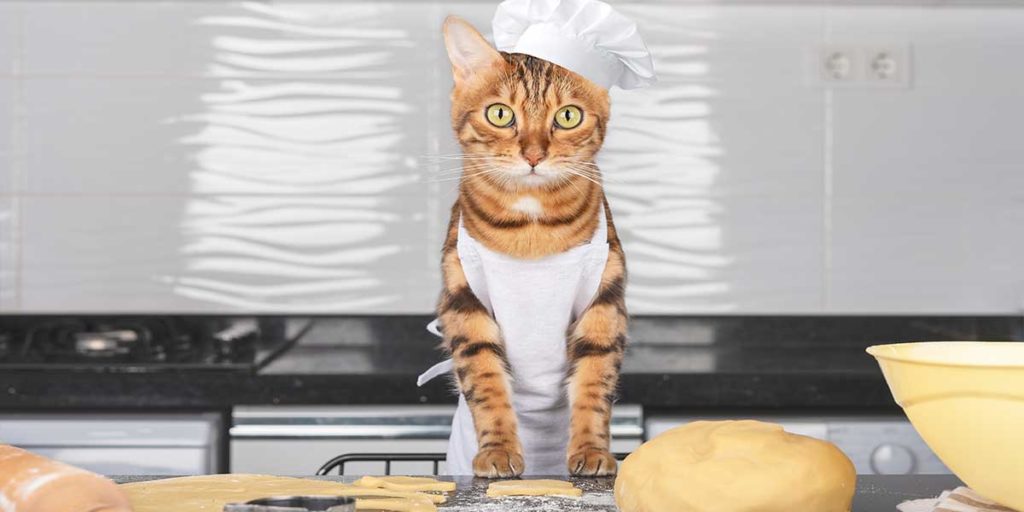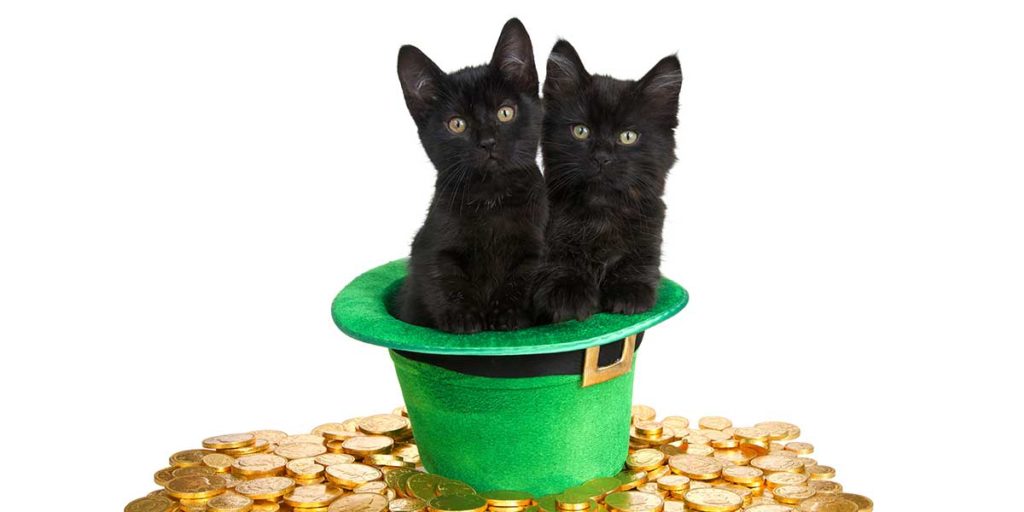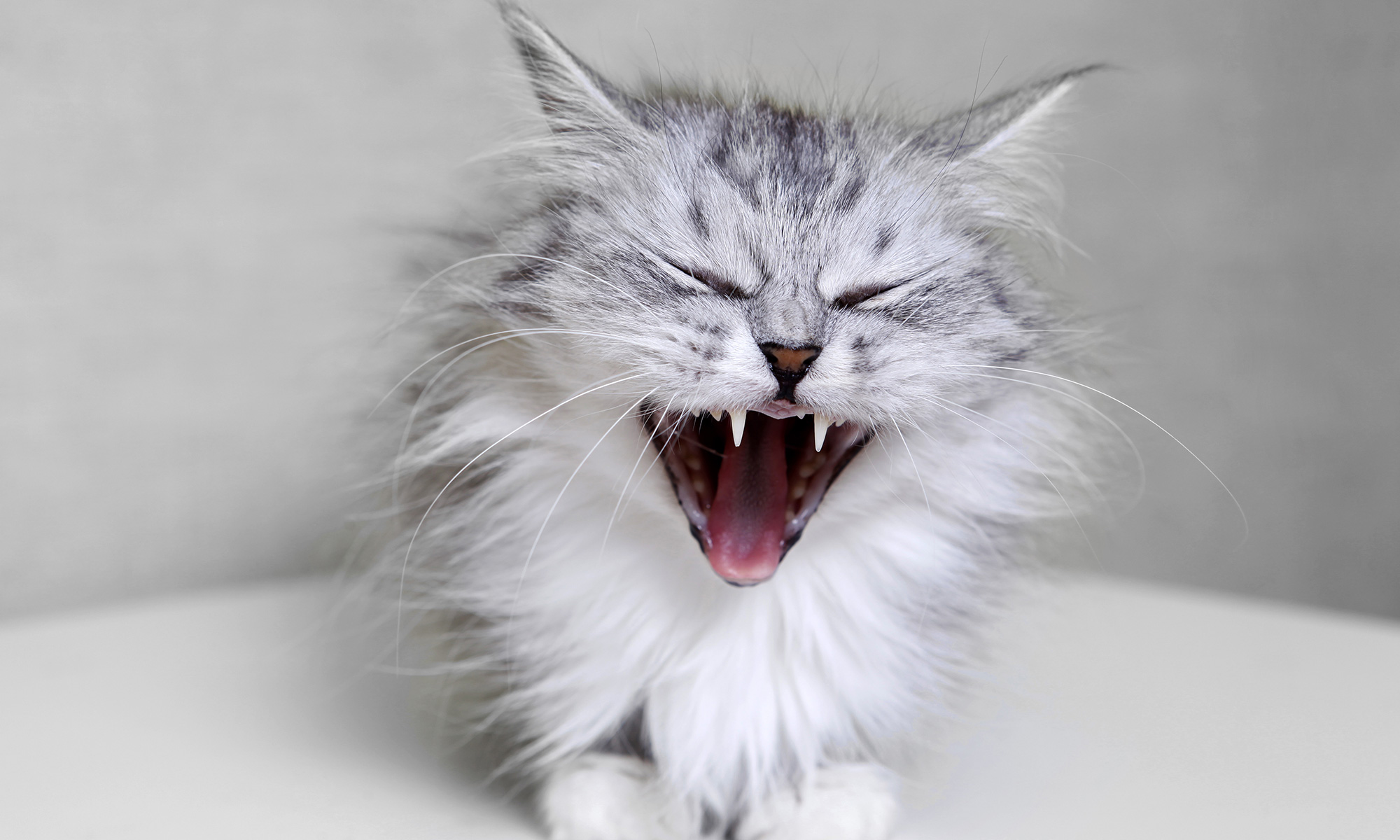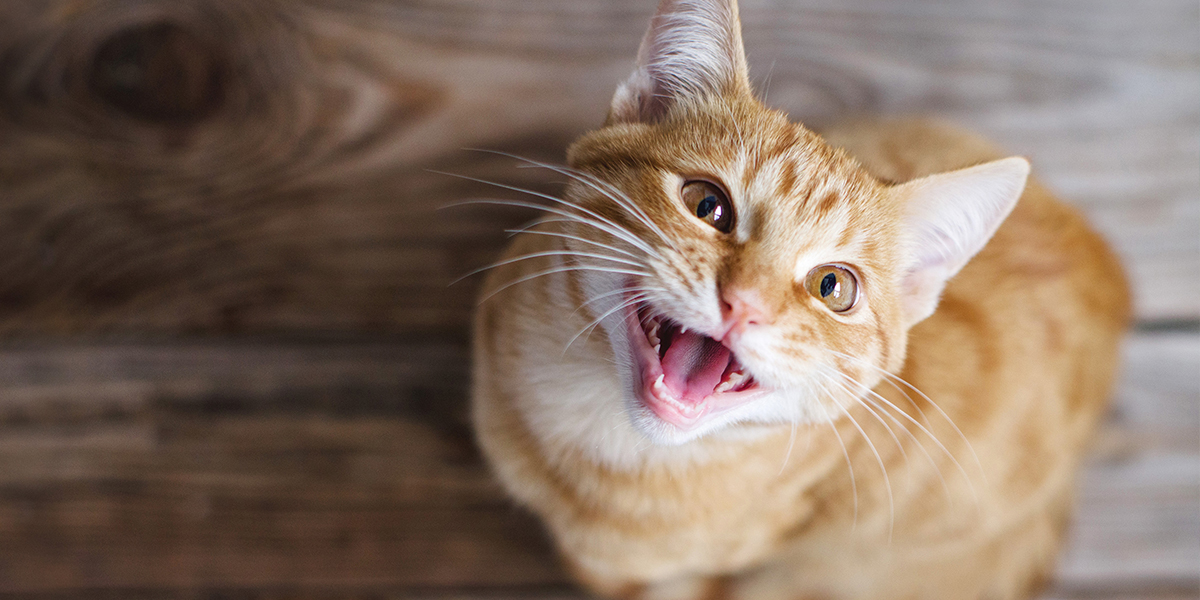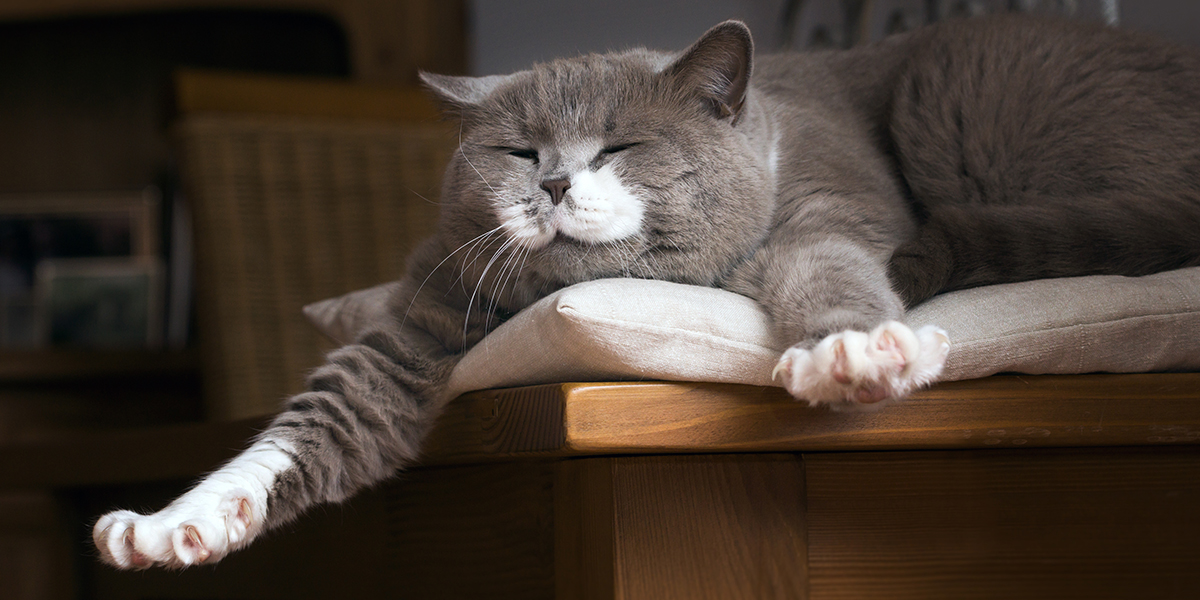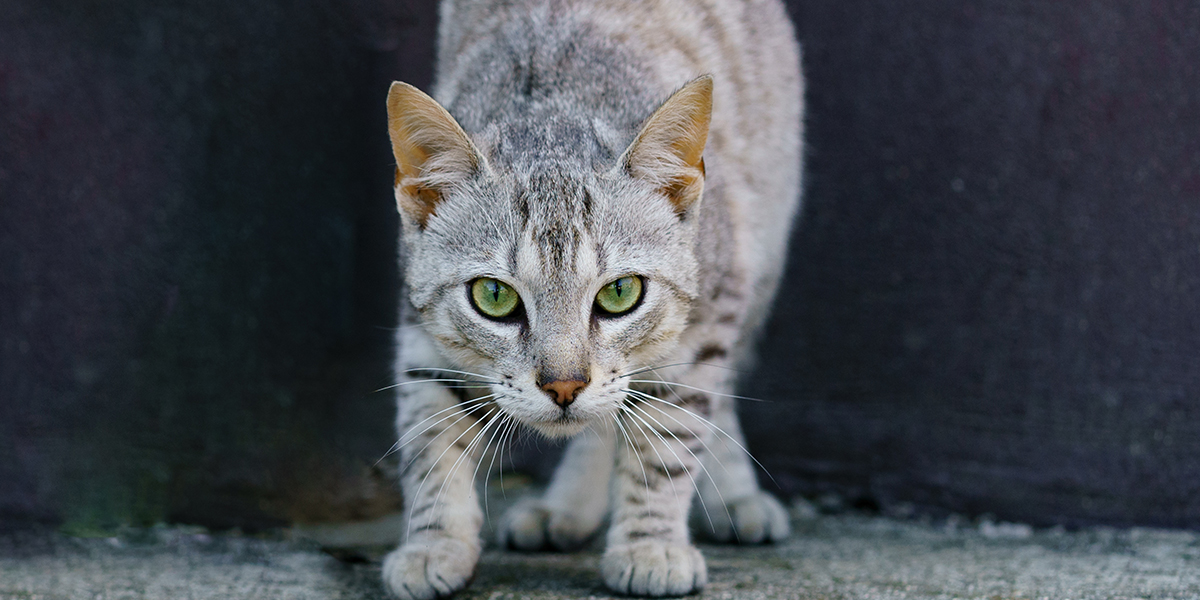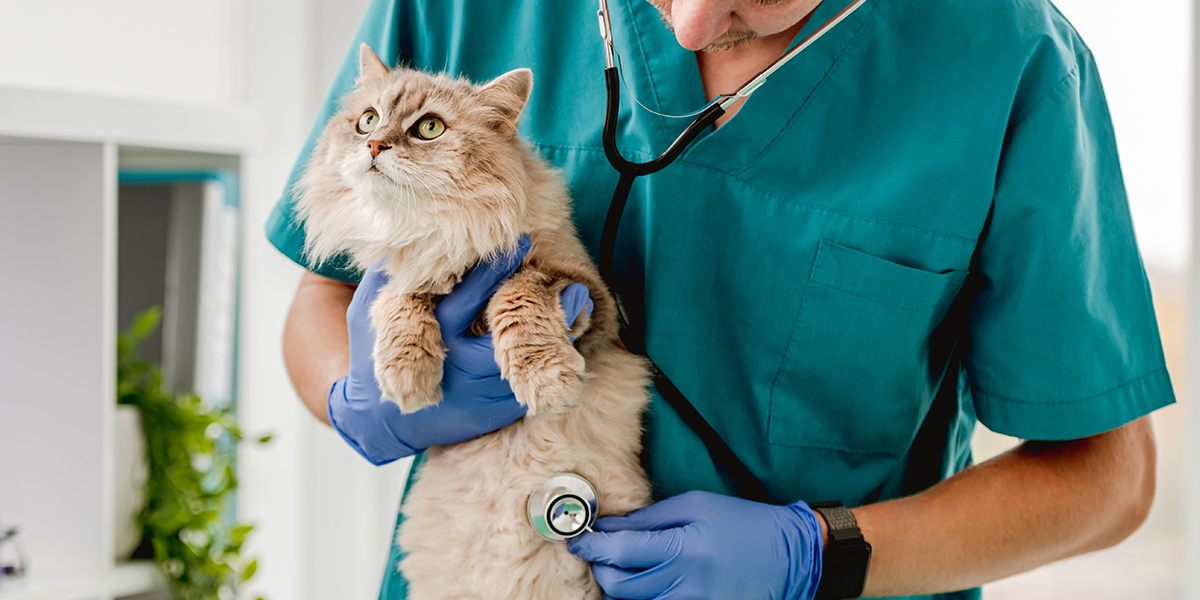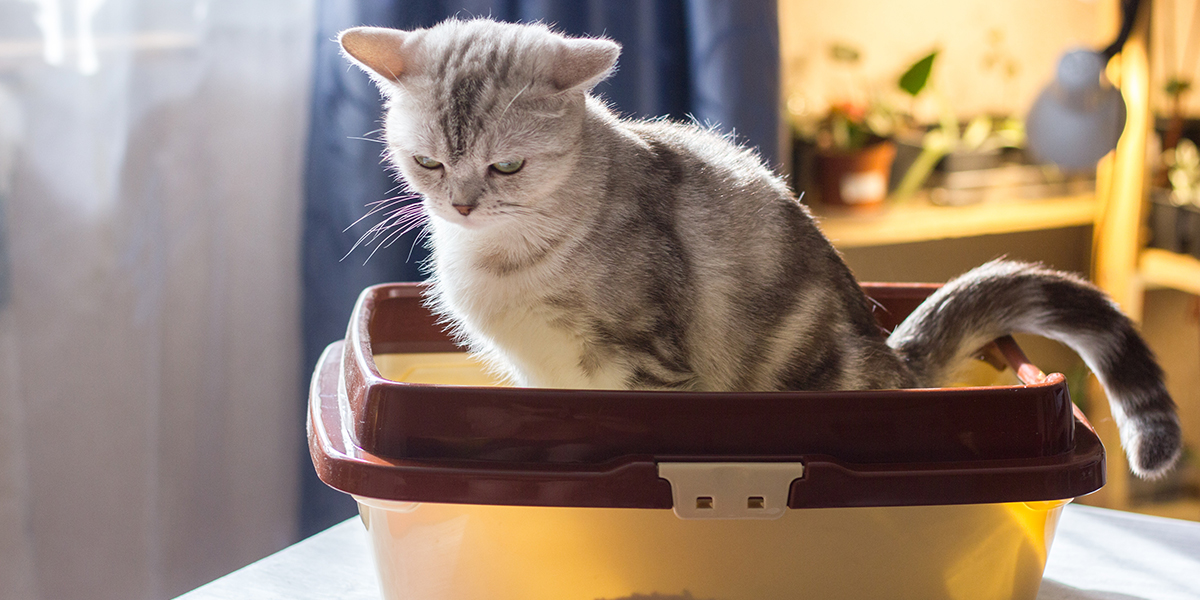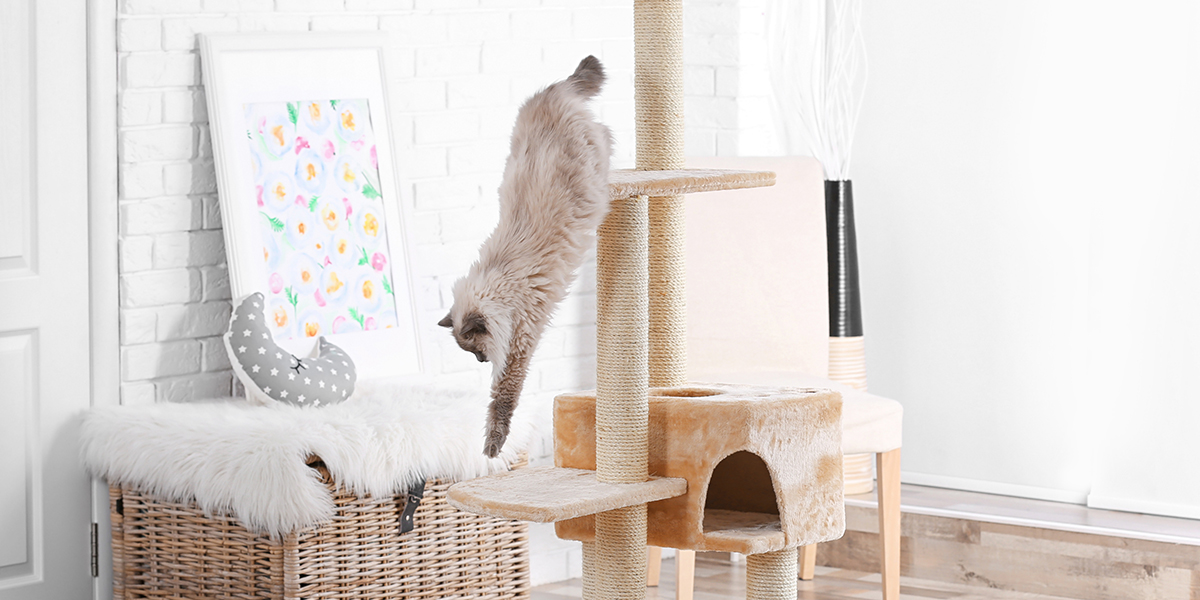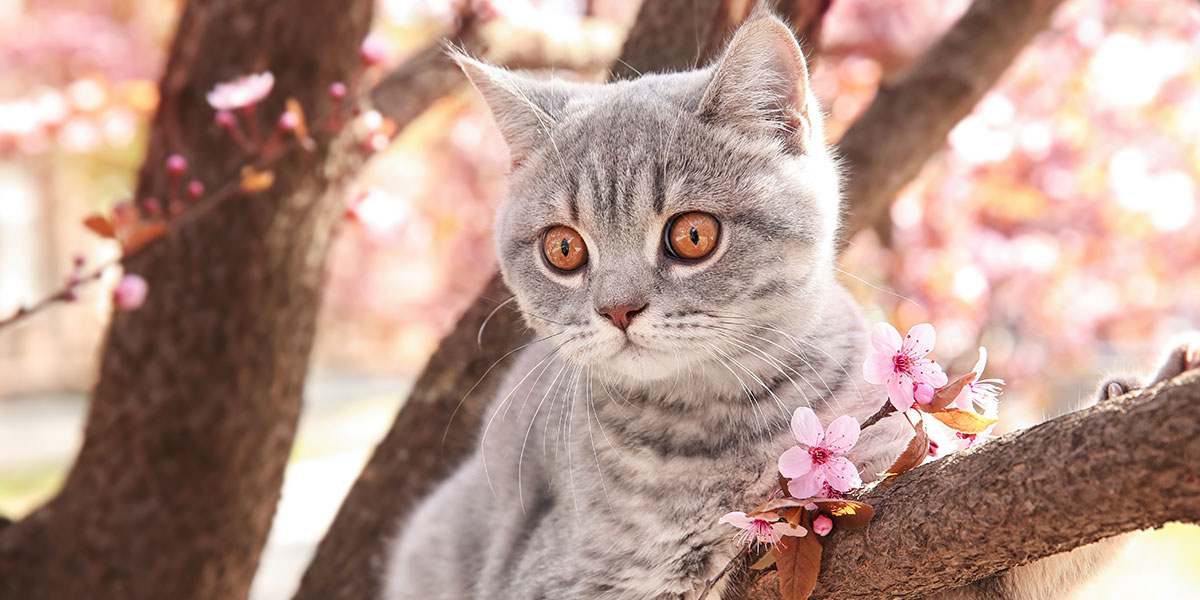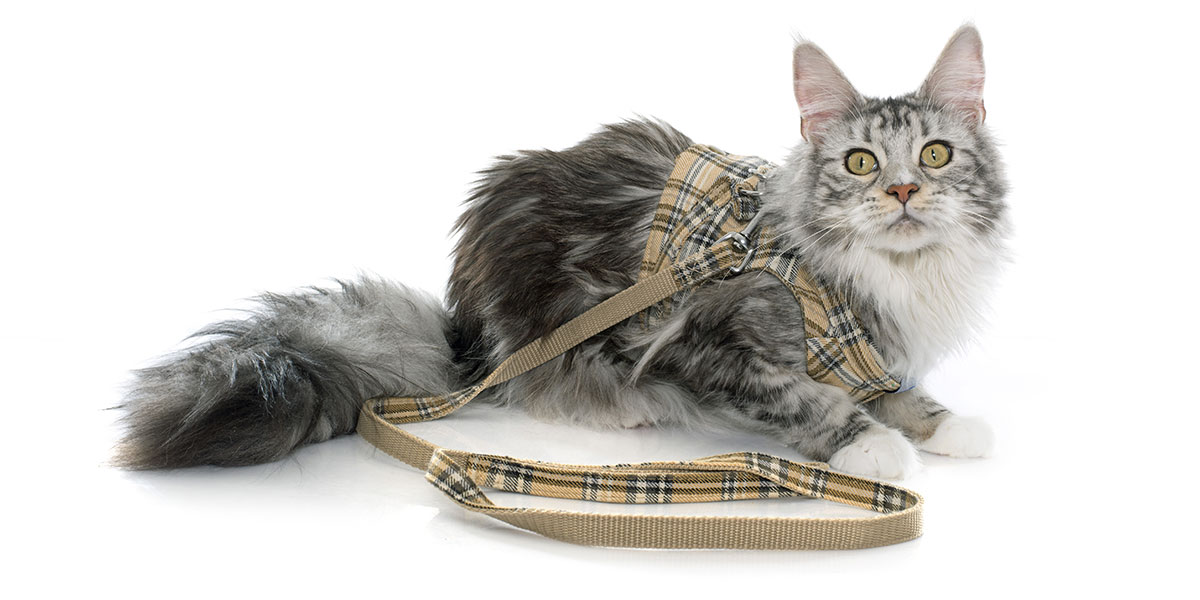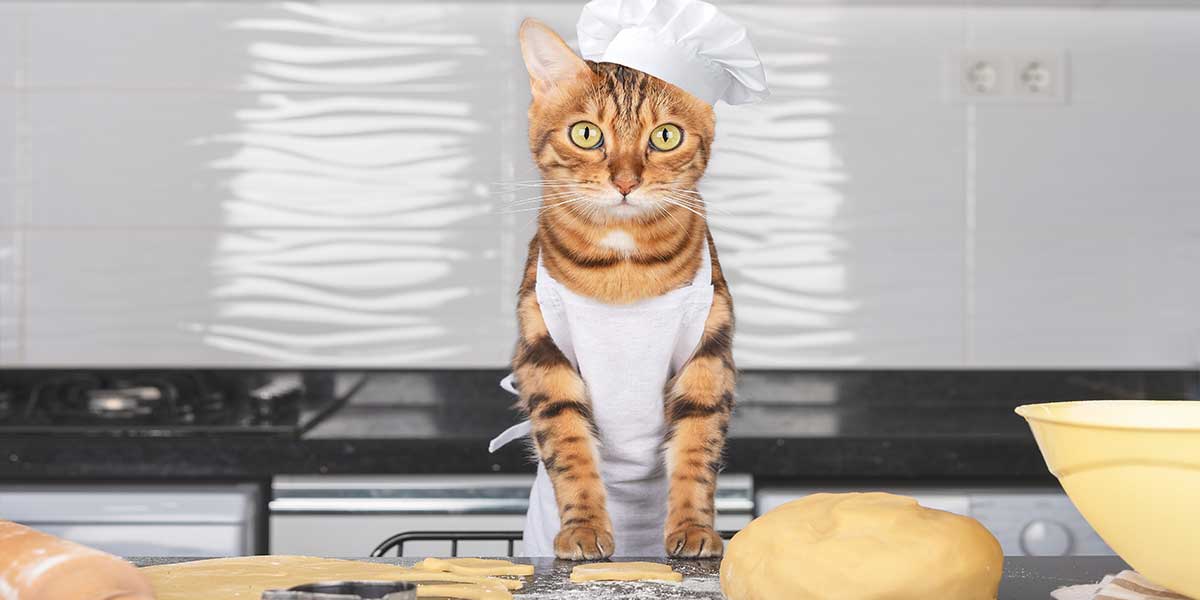The 101 Guide to Cat Zoomies (And What They Tell You About Your Kitty)
On any given day, cats sleep for an average of 15 hours. The other nine? Most of them are spent turning a cardboard box into a fortress, chasing your lost hair elastic around the entire house, or pestering your other cat (ya know, just cat things). But during this time, you may also notice an uptick in your cat’s energy. Maybe they’ll go from a slow saunter to a running jolt. Or perhaps they’ll just go plain crazy. If you notice this kind of zero to 60 hyperactivity, the chances are that your cat has a case of zoomies.
It’s often relatively easy to spot the cat zoomies (just look for a blur of fur making its way through a room … or running into every piece of furniture possible), but the reason behind them may be harder to nail down. Some cats get the zoomies right before bed; others get them after relieving themself in the cat litter box. Here, we’ve broken down all the possible reasons why your cat may get the zoomies — some weird, some wacky, some totally obvious — and what you should do the next time the energy hits.
Why Cat Zoomies Happen
Remember: Cats are complex creatures, so it may be tricky to come up with a sole reason behind your cat’s sudden burst of energy. It’s possible that it may be a unique combination of factors or something incredibly specific to your cat. But here are by far the most common culprits behind the always-startling, sometimes-annoying cat zoomies:
- Your cat just woke up from a long slumber.
- Your cat is tapping into its predatory side.
- Your cat may have an underlying medical condition.
- Your cat gets a “high” after going to the bathroom (yes, really).
Your cat just woke up from a long slumber
You know the feeling: Right after waking up from a good night’s rest (we’re talking a total of eight hours here), you’re ready to take on whatever the day throws at you. The same goes for your cat. In fact, your cat takes things one step further and throws itself at, well, everything. Running from one end of your house to the next could be your cat’s ideal wake-up call — or at the very least, a clever way to reinvigorate its body before it takes on a new paper bag, robotic mouse, or toy of its choice.
Your cat is tapping into its predatory side
Even if they’re soft and cuddly on the outside, cats are hunters at their core. During their zoomies session, it may look like your cat is on the chase — and that’s because they are, sort of. They may be going after imaginary prey, putting their natural hunting skills to good use.
You may even find that your cats mimic this particular behavior at certain hours of the day, especially dawn and/or dusk. “One reason is that cats are naturally crepuscular, meaning active at dawn and dusk, which is when their natural prey [rodents] are active. Their internal rhythm just tells them, ‘It’s time to get active and start hunting,” Mikel Delgado, a postdoctoral fellow at the School of Veterinary Medicine at UC Davis, tells Inverse.
Your cat may have an underlying medical condition
Okay, some cats like to cover their business in cat litter and zoom off. But sometimes, a zoomies moment after a trip to the bathroom may indicate that there is something more serious going on. They may try to run their discomfort out of their system if they’re dealing with things like a urinary tract infection or an inflamed colon. Aside from their follow-up jaunt, look through the cat litter to see if you can spot any diarrhea, abnormally hard stool, or blood in the stool or urine. If anything seems off (or you’re looking for some reassurance), give your cat’s veterinarian a call, stat.
But it’s not just down there that counts. Feline hyperthyroidism may influence a cat to start zooming. Like the human equivalent, this condition is when the thyroid gland produces too much of the hormone thyroxine. Often, it leads to weight loss, a rapid or irregular heartbeat, increased appetite and thirst, and a frantic sense of energy. It’s especially common in middle-aged or senior cats, so it’s essential to watch for the signs if your older cat starts zooming out of nowhere (on a fairly regular basis).
Your cat gets a “high” after going to the bathroom (yes, really)
This one may seem like a stretch, but the proof is in the science: Some cats may feel a sense of euphoria after passing a large stool. Like humans, cats have a vagus nerve, which can be triggered by passing a substantially-sized stool. “The net effect of this is a drop in your heart rate and blood pressure, which in turn decreases blood flow to the brain. When mild, the light-headedness can lead to a sense of sublime relation — the high,” Dr. Anish Sheth, a gastroenterologist and co-author of What’s Your Poo Telling You?explained. This high that he describes? Sheth refers to it as poo-phoria … how fitting!
What to Do When Your Cat Has the Zoomies
As long as it isn’t disrupting you or anyone in your household, embrace the chaos and let your cat run it out. Think about it this way: Your cat gets pent-up energy just like the rest of us, but they can’t get out and about the way that humans do. That means, sometimes, a few minutes of zooming is the only way that they can find their release.
If you find that the cat zoomies happen every single day like clockwork, you can try to tame down the situation, especially if it tends to happen when you’re sleeping, by keeping your cat more active throughout the day. Say if their zoomies typically hit late at night, try to tire your cat out with laser pointers, string toys, and other interactive games before you head to bed. Or consider adjusting their feeding schedule so that they tire out at different hours of the day. You can even plan your playtime before a meal, so they are tuckered out and well-fed before falling asleep for their 15-hour sleep.
When You Should Take Your Cat’s Zoomies Seriously
Don’t be alarmed by the occasional outburst unless it’s mainly out of character for your otherwise lazy cat. First and foremost, pay attention to when and how often the cat zoomies take place. If you notice your cat exhibiting this behavior far more than usual and seems distressed while doing so, then it’s best to bring it up to your veterinarian. Also, be on the lookout for medical conditions that can be linked to cat zoomies, like infection and inflammation of the urinary tract, colon, or rectum. To do so, watch your cat’s behavior and scan the litter box for diarrhea, tough stool, and blood in the urine or poop.
When it comes to feline hyperthyroidism, key in on common symptoms like increased appetite and thirst, sudden weight loss, vomiting, diarrhea, and excessive urination. This is something vets will look out for as your cat ages, but it’s always a good idea to stay on top of things for you and your feline.
The next time you’re shopping for your favorite kitty, consider testing out Skoon’s Unscented Original Pebbles — our signature non-clumping cat litter.


